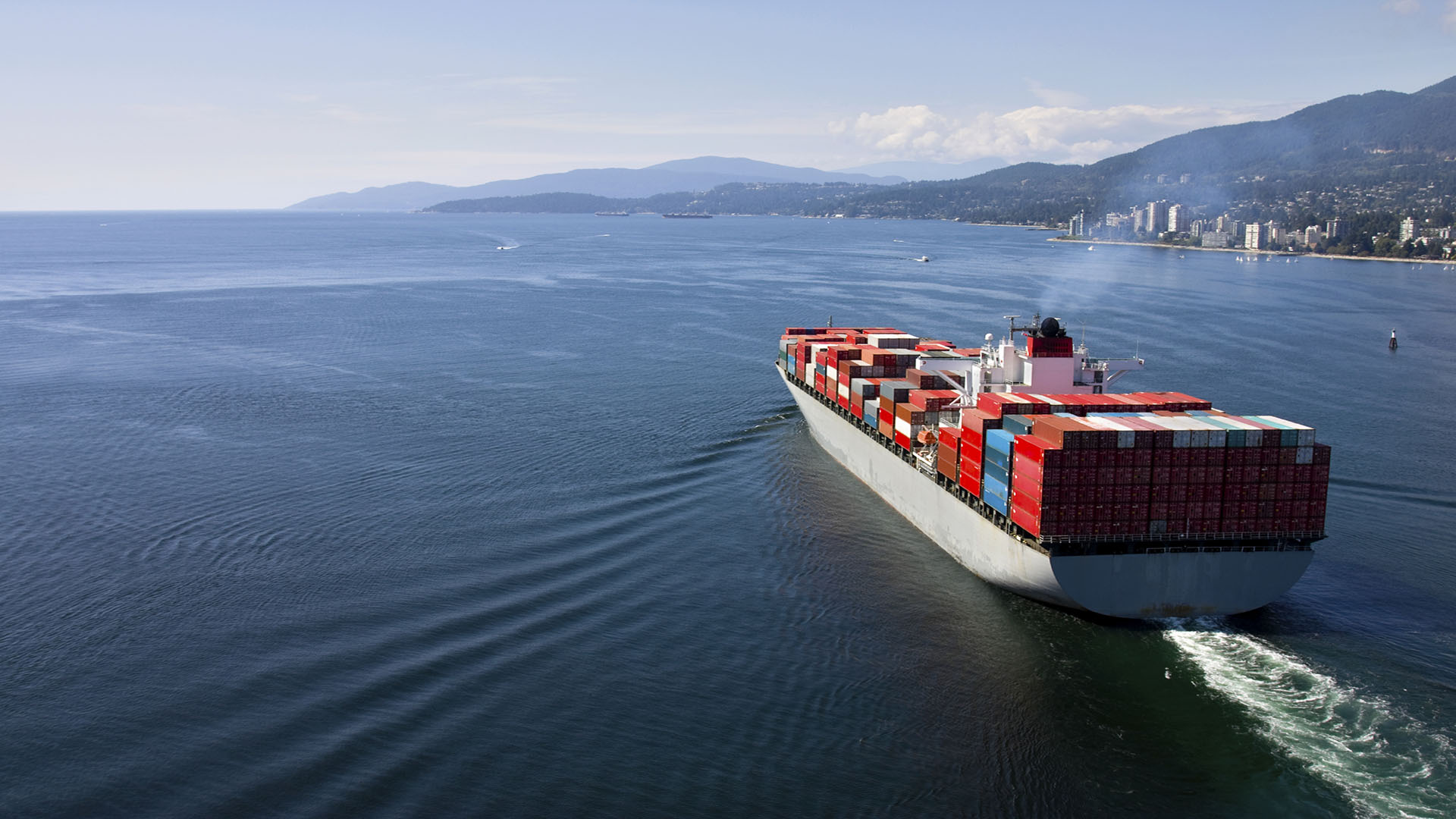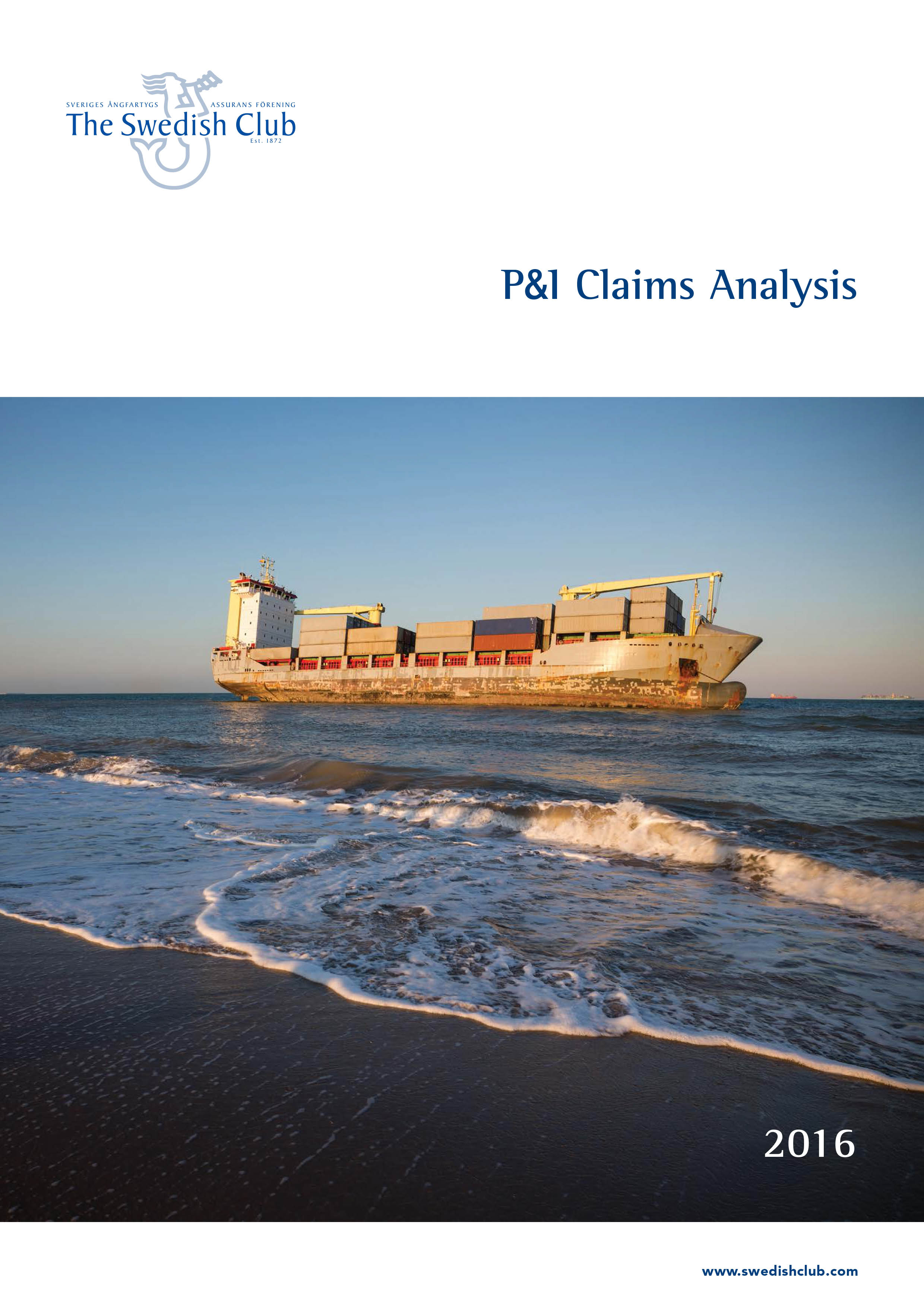
New report from The Swedish Club shines light on vessel claims
The life of seafarers is never straightforward, and as a new report from The Swedish Club shows, the hazards and job complexities they face are very much dependent on the type of vessel they find themselves crewing.
 In P&I Claims Analysis, published this week, the Club has studied thousands of incidents in the last ten years, across a range of vessel segments and claims types, and made some interesting discoveries.
In P&I Claims Analysis, published this week, the Club has studied thousands of incidents in the last ten years, across a range of vessel segments and claims types, and made some interesting discoveries.
Seafarers on container ships need to watch their step, as almost 60% of all slips and falls occur on container vessels – almost certainly due to the amount of debris on board and the number of people involved in cargo operations.
Meanwhile, those working on bulk carriers must take care to avoid cargo damage, with bulk carriers recording both the highest average cargo claims cost and also the most frequent claims over the last ten years.
A failure to check cargo properly before loading and improper cargo handling are the cause of the most expensive and most common claims respectively, emphasising how important it is for crews to monitor entire cargo operations to secure as much evidence as possible about damaged cargo.
With the various vetting processes in place, it is no surprise that tanker claims make up the smallest proportion of cargo claims seen by the Club. But those on board cannot rest on their laurels with around 60% of claims and the same proportion of costs incurred by improper cargo handling and insufficient cleaning.
The report also highlighted both an increase in claim costs and a rise in the number of claims for the most common P&I claims: cargo, illness and injury, over the last ten years. Worryingly, the Club has seen a rise in the number of claims for all vessel types.
Bulk carriers top the charts, with the greatest increase in the number of claims. This trend is also being seen in the container sector, with both the cost per claim and the number of claims rising. The frequency and cost for tankers are the lowest of the three types.
Lars Malm, Director, Strategic Business Development & Client Relations at The Swedish Club says, “With the pressures faced by today’s crews, and based on the findings, we actively encourage and advise all members to participate in the Maritime Resource Management courses run by The Swedish Club Academy, which aim to enhance safety at sea.”
For an in-depth analysis on the issues raised here and more, a copy of the report is available at www.swedishclub.com/media/publications/brochures/
Click here to download the full press release»
For further information please contact:
Debra Massey
dmassey@elabor8.com
+44 1296 682675
Notes to Editors:
The Swedish Club was founded in 1872 and is today a leading and diversified mutual marine insurance company, owned and controlled by its members. The Club writes Protection & Indemnity, Freight, Demurrage & Defence, Hull & Machinery, Hull Interests, Loss of Hire, War Risks, and any additional insurances required by shipowners or charterers. It also writes Hull & Machinery, War risks and Loss of Hire for Mobile Offshore Units and FPSOs.
Its head office is located in Gothenburg, Sweden, with branch offices in Piraeus, Hong Kong, Tokyo, Oslo and London.
More information about the Club is available on: www.swedishclub.com